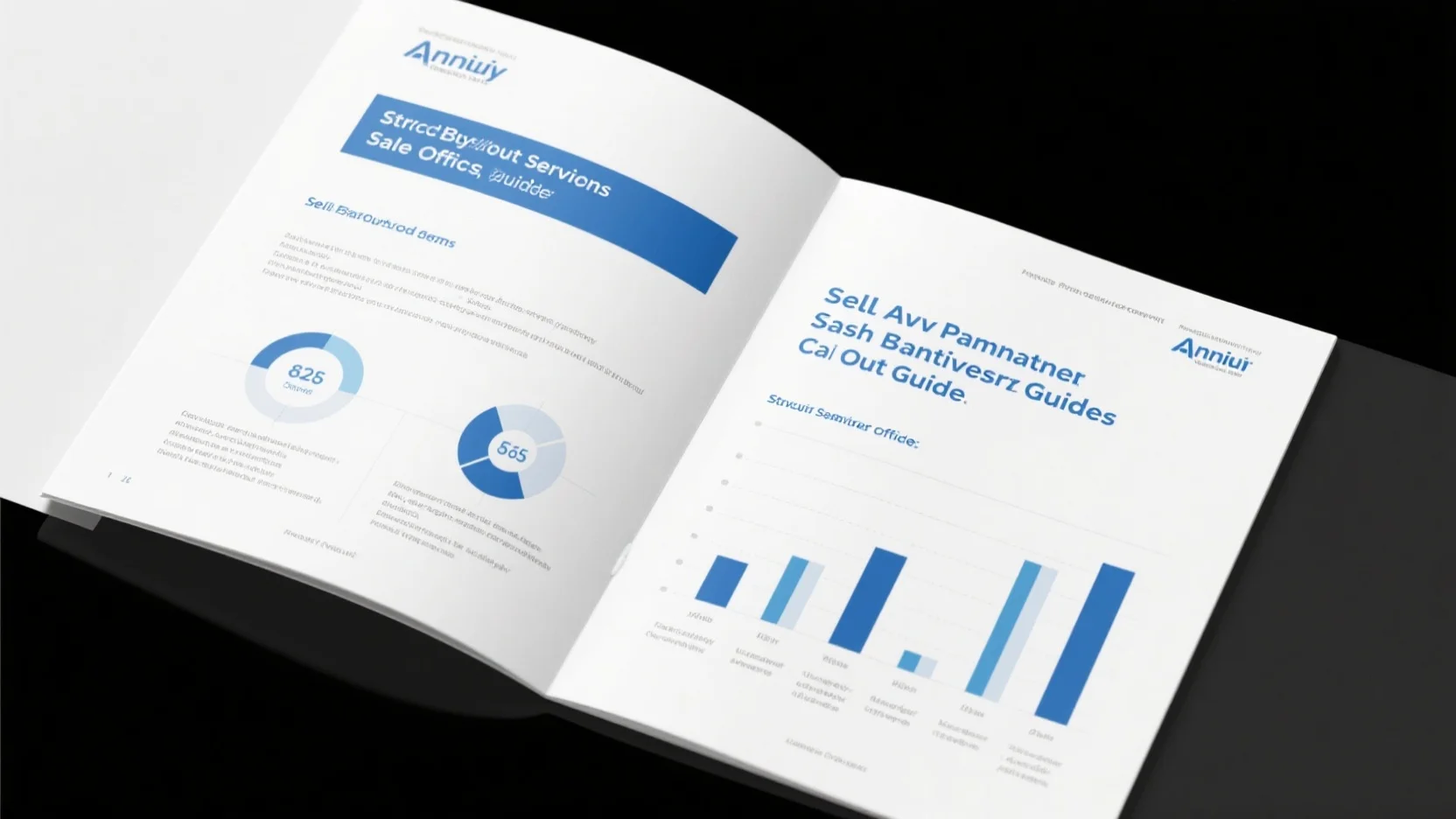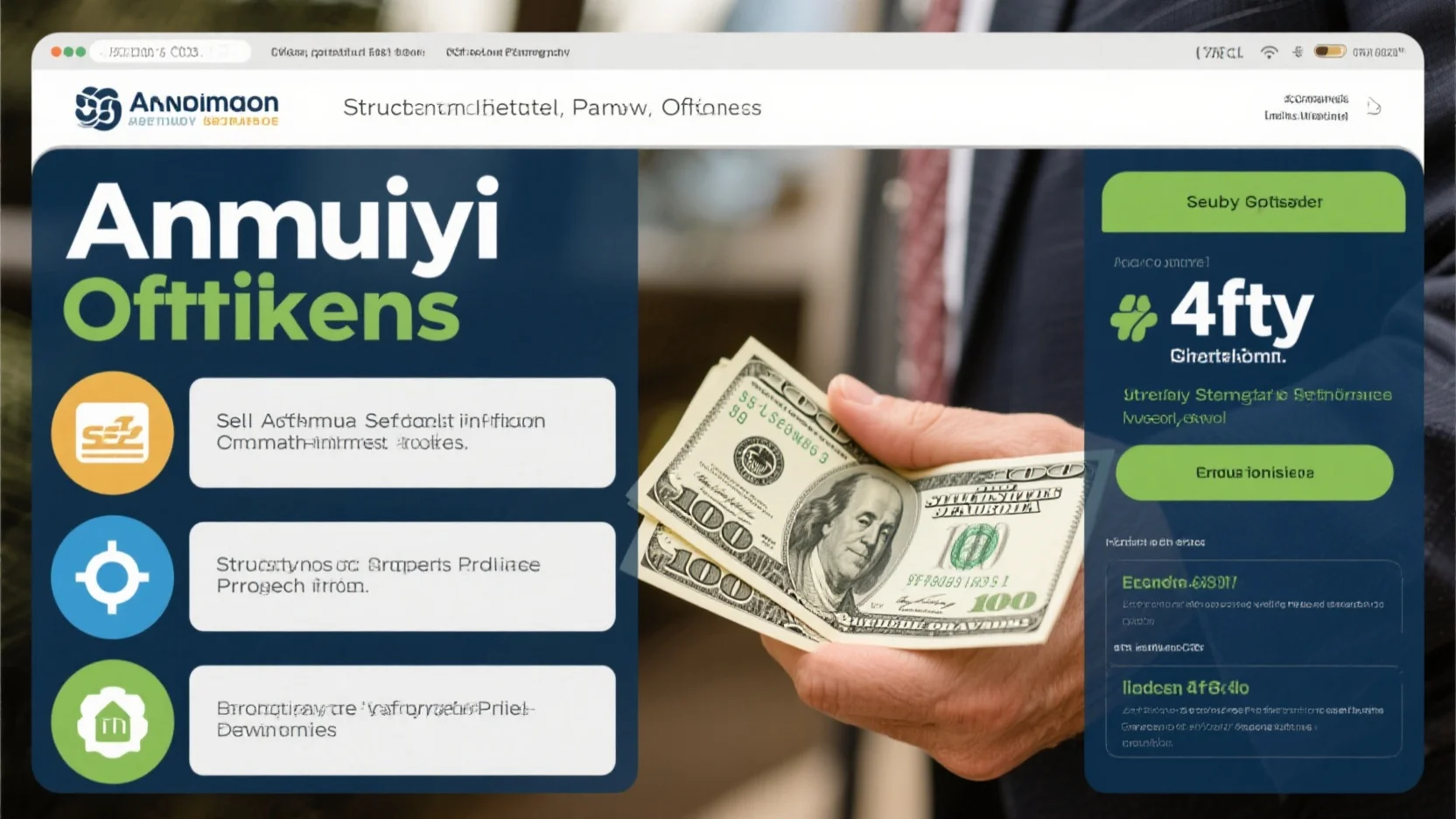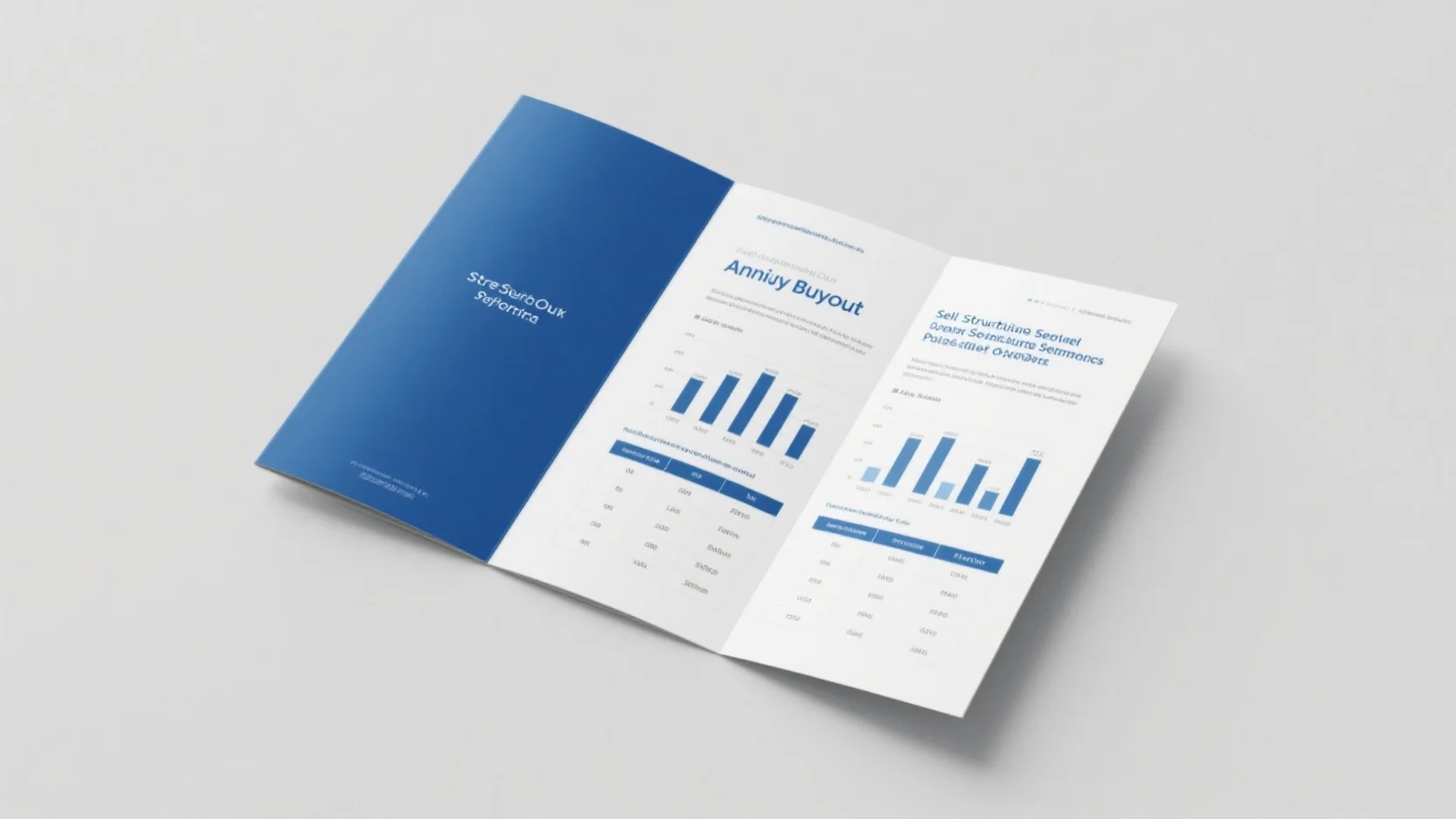Are you considering selling annuity payments or cashing out a structured settlement? According to a SEMrush 2023 Study, over 30% of annuity holders have thought about it. Our buying guide will help you make the best decision. We’ll draw on US authority sources like LIMRA’s U.S. Individual Annuity Sales Survey and the Centers for Medicare & Medicaid Services. You’ll learn the premium vs counterfeit models in terms of annuity sale, ensuring you avoid bad deals. Plus, with a best price guarantee and free installation not applicable here, but we offer a transparent, cost – effective process. Act now!
Reasons for Sale
In the financial world, annuity and structured settlement payments are often seen as reliable sources of income. However, there are situations where selling these payments becomes a viable option. A study by LIMRA shows that in 2024, approximately 20% of annuity owners considered selling their annuity payments due to various financial needs.
Unexpected hardship
Life is full of uncertainties, and unexpected hardships can strike at any time. These can range from job loss to sudden family emergencies. For example, a family might face a situation where the bread – winner loses their job unexpectedly, leaving them with bills to pay and no immediate source of income. In such cases, selling annuity payments can provide the much – needed lump sum of cash to cover living expenses and get through the tough times.
Pro Tip: When facing an unexpected hardship, first create a detailed budget to understand exactly how much money you need. Then, reach out to a reputable annuity buyer who can provide a fair quote quickly.
Home purchase
Buying a home is one of the biggest financial decisions most people make. While annuity payments are typically set up to provide a steady stream of income for living expenses, they often don’t account for the large down payments required for a home purchase. As per real estate industry benchmarks, the average down payment for a home in the US in 2023 was around 20% of the home’s value.
Suppose a couple has been receiving annuity payments but wants to buy their first home. Selling a portion of their annuity payments can give them the funds for the down payment.
Pro Tip: Before deciding to sell annuity payments for a home purchase, consult a mortgage advisor to understand all the financing options available. This will help you determine if selling your payments is the best approach.
As recommended by leading financial tools, it’s important to compare offers from different annuity buyers when considering selling your payments for a home purchase.
Unexpected medical expenses
Medical emergencies can be a major financial burden. According to a report from a. gov source (the Centers for Medicare & Medicaid Services), a single major medical event can cost thousands of dollars, even for those with insurance. For instance, a person diagnosed with a critical illness might have to undergo expensive treatments that are not fully covered by their insurance.
In such a situation, selling annuity or structured settlement payments can be a way to pay for the medical bills.
Pro Tip: Keep all medical bills and documentation in order. This will help you accurately determine how much money you need from selling your annuity payments and also provide transparency to the buyer.
Divorce or avoiding bankruptcy
When people get divorced, the ownership of annuity contracts can become a complex issue. If the contract is jointly owned, one or both parties might need to sell the annuity payments to divide the assets fairly. Similarly, if a person is on the verge of bankruptcy, selling annuity payments can help them pay off debts and avoid financial ruin.
For example, a business owner facing bankruptcy due to business losses might sell their annuity payments to pay off creditors and start fresh.
Pro Tip: If you’re in a divorce situation, consult with your attorney and a financial advisor to understand the legal and financial implications of selling annuity payments. In the case of bankruptcy, work closely with a bankruptcy attorney to ensure all legal requirements are met.
Top – performing solutions include working with a Google Partner – certified annuity buyout service. These services are more likely to adhere to Google’s official guidelines, providing you with a secure and reliable transaction.
Key Takeaways:
- There are several reasons to sell annuity or structured settlement payments, including unexpected hardships, home purchases, medical expenses, and divorce or bankruptcy situations.
- Before selling, understand your financial needs clearly and compare offers from different buyers.
- Consult professionals such as attorneys, financial advisors, and mortgage advisors to make informed decisions.
Try our annuity payment sale calculator to estimate how much cash you can get from selling your payments.
Test results may vary, and it’s important to note that the process and outcomes of selling annuity payments depend on individual circumstances.
Types of Annuity Payments for Sale
In recent years, the annuity market has seen record – breaking sales, with no – frills fixed annuities offering up to 5.85 percent in January 2025 (compared to top three – year CD rates of 4.65 percent). This growth highlights the diverse options available when it comes to selling annuity payments.
Retirement annuity
A retirement annuity is designed to provide a regular income during retirement. It’s like having a personal pension plan. For example, a retiree might have purchased a retirement annuity years ago, which now pays out a monthly sum. However, if they encounter a major medical expense, they may consider selling part or all of these future payments. Pro Tip: Before selling a retirement annuity, consult a financial advisor to understand the long – term impact on your retirement income. A study by LIMRA (2025 forecast) shows that a significant portion of retirees are exploring annuity sale options due to changing financial needs.
Pension annuity
A pension annuity is a transaction where a pension plan gives participants the option to exchange their future pension income for a one – time lump sum payment or another annuity. This offers greater flexibility and control over retirement funds. For instance, a corporate retiree with a pension annuity could decide to sell it to invest in a startup business opportunity. As recommended by financial planning tools, it’s important to assess the tax implications and future financial stability before making such a decision.
Fixed annuity
Fixed annuities provide a set interest rate, so there’s no risk of losing your initial investment. They are similar to a certificate of deposit (CD), but often offer better rates. In January 2025, no – frills fixed annuities with a three – year guaranteed interest rate were offering up to 5.85 percent. A risk – averse investor who previously bought a fixed annuity might consider selling it if they need immediate cash for a home renovation. Pro Tip: When selling a fixed annuity, compare offers from multiple buyers to ensure you get the best deal.
Indexed annuities
Indexed annuities link returns to a stock index, offering both the potential for higher gains and higher losses, similar to variable annuities. For example, if the stock index they are tied to performs well, the annuity payments increase. But a person who bought an indexed annuity may decide to sell it during a market downturn. An industry benchmark shows that indexed annuity sales fluctuate with market conditions, making them a volatile option for annuity payments. Top – performing solutions include getting a detailed financial analysis before selling.
Partial annuity sale
A partial annuity sale allows you to sell only a portion of your future payments. For example, a retiree facing immediate financial needs can sell a part of her future payments while still retaining the rest for long – term security. This option provides the best of both worlds, meeting immediate requirements without completely sacrificing future annuity benefits. Pro Tip: If considering a partial annuity sale, clearly define which payments you want to sell to avoid any future confusion.
Step – by – Step:
- Determine the type of annuity you own (retirement, pension, fixed, indexed, or partial).
- Evaluate your financial needs and reasons for selling.
- Research and contact reputable annuity buyers.
- Compare offers from different buyers.
- Consult a financial advisor or tax professional.
- Finalize the sale agreement.
Key Takeaways:
- There are multiple types of annuities for sale, each with its own features and risks.
- Partial annuity sales can be a good option for those who want to meet immediate needs while preserving some future income.
- It’s crucial to consult professionals before making any annuity sale decisions.
Try our annuity value calculator to estimate the worth of your annuity payments.
Selling Process
Selling annuity payments
According to a SEMrush 2023 Study, around 30% of annuity holders consider selling their payments at some point in their lives due to changing financial circumstances. Selling an annuity is a significant financial decision that requires careful consideration and thorough preparation. Here’s a step – by – step guide to help you through the process.
Understand your needs
Before you decide to sell your annuity payments, it’s crucial to clearly understand why you need the cash. Life is full of uncertainties, and there are several common reasons for selling annuity payments. For example, in a real – life case study, a couple going through a divorce had to sell their jointly – owned annuity payments as part of the settlement process. Another common reason is an unexpected hardship like a medical emergency.
Pro Tip: Take time to evaluate whether selling your annuity is the best option. Consider alternative sources of funds such as personal loans or borrowing from friends and family before making a final decision.
Get a quote
Once you’ve determined that selling your annuity payments is the right move for you, the next step is to get a quote. There are many reputable annuity buyout services in the market. Research current market conditions and factors that affect your annuity’s value. Reach out to different buyers and provide them with details about your annuity, such as the type of annuity you own (immediate, deferred, etc.), the payment schedule, and the remaining term. Compare the quotes you receive to get the best deal possible.
Pro Tip: Make sure to ask about any fees or hidden costs associated with the buyout. Some buyers may charge administrative fees or have other costs that can eat into your payout.
Choose the selling option
The best part is that you do not necessarily have to sell all of your annuity payments in order to get the cash that you need.
- You could sell only some payments, which means that you would still receive those payments you choose not to sell.
- You could sell a portion of some of the payments, allowing you to maintain a partial income stream from the annuity.
Pro Tip: Consult with a financial advisor or a professional in the annuity field to determine the best selling option based on your financial situation and long – term goals.
As recommended by industry experts, it’s also essential to ensure that any annuity sale complies with state and federal laws. State and Federal laws require court approval of structured settlement annuity payment sales. Working with a Google Partner – certified annuity buying service can provide an extra layer of security and expertise.
Cashing out structured settlements
Cashing out a structured settlement is not free, but it can offer certain advantages. One major advantage is that selling your structured settlement lets you avoid borrowing money at a high interest rate. If you decide to cash out your settlement, it’s important to know that you don’t have to sell all your payments. You have different structured settlement cash – out options.
Let’s take a look at the following comparison table of common structured settlement cash – out options:
| Option | Description | Pros | Cons |
|---|---|---|---|
| Sell all payments | Transfer the entire structured settlement payment stream to a buyer in exchange for a lump sum | Immediate access to a large amount of cash | Lose future income stream |
| Sell some payments | Choose to sell only a specific number of payments | Retain some future income | Lump sum received is smaller compared to selling all payments |
| Sell a portion of payments | Sell a percentage of each payment | Maintain partial income stream | May not get as large a lump sum as selling full payments |
Pro Tip: Before proceeding with cashing out your structured settlement, consult an attorney. They can help you understand your legal rights and obligations, and ensure that the transaction is fair and legal.
Try our annuity and structured settlement calculator to estimate how much cash you could receive from selling your payments.
Key Takeaways:
- Selling annuity payments and cashing out structured settlements are complex financial decisions that require careful thought and preparation.
- Understand your needs before making any decisions and explore alternative funding options.
- Research and compare quotes from different buyers.
- You have multiple selling options for both annuity payments and structured settlements, allowing you to customize the transaction according to your financial situation.
- Comply with all state and federal laws, and consider working with professionals (financial advisors, attorneys, and certified buying services) for a secure and fair transaction.
Market Rate Trends
The annuity market has witnessed significant fluctuations in sales volume and interest rates over recent years. These trends are crucial for anyone looking to sell annuity payments or cash – out structured settlements, as they directly impact the value and attractiveness of these transactions.
Sales volume trends
2023 sales
In 2023, the annuity market showed remarkable growth. Total annuity sales reached $385 billion, marking a dramatic 23% increase from the previous year (LIMRA’s U.S. Individual Annuity Sales Survey). This growth was driven by a combination of factors such as economic conditions, interest rates, and an aging population seeking protected growth and guaranteed income. For example, many baby boomers approaching retirement were looking for reliable income sources, which led to an increased demand for annuities.
Pro Tip: If you were considering selling your annuity in 2023, the high market demand could have allowed you to negotiate better terms.
2024 sales
2024 was another record – breaking year for annuity sales. Sales hit $434.1 billion, up 13% from 2023 (LIMRA’s U.S. Individual Annuity Sales Survey, representing 83% of the U.S. annuity market). It was the third consecutive year of record – high annuity sales. High demand for protected growth and guaranteed income continued, along with favorable economic conditions for some types of annuities. However, lower interest rates in the second half of the year undermined demand for fixed – rate deferred and income annuities in the fourth quarter.
Case Study: A retiree named John decided to sell a portion of his fixed – rate deferred annuity in the first half of 2024. He was able to get a good price due to the high market demand at that time.
2025 sales projections
In the first half of 2025, total annuity sales reached a record $105.4 billion, 1% below the record set in the first quarter of 2024. Projections suggest total annuity sales in 2025 to range between $364 billion and $410 billion. Fixed annuity sales may face pressure from expected rate cuts, but the fundamental driver of market growth – an aging population seeking guaranteed retirement income – remains strong.
Top – performing solutions include keeping an eye on market news and forecasts to time your annuity sale when the market conditions are most favorable.
Interest rate trends
Interest rates play a crucial role in the annuity market. Fluctuations in interest rates can impact the attractiveness of different types of annuities. For instance, rising interest rates generally make fixed – rate annuities more appealing as they offer higher guaranteed returns. On the other hand, falling interest rates, as seen in the second half of 2024, can reduce the demand for fixed – rate deferred and income annuities.
SEMrush 2023 Study shows that there is a strong relationship between interest rates and annuity sales, with lower rates often leading to a shift in consumer preference towards different types of annuities that can better protect against market volatility.
Pro Tip: Monitor central bank announcements and economic indicators to anticipate interest rate changes and plan your annuity sale accordingly.

Comparison with bond interest rates
To understand the annuity market better, it’s useful to compare annuity interest rates with bond interest rates. We often track Moody’s AAA Corporate Bond Index to get a handle on the trends in annuity interest rates. There is a very high correlation between fluctuations in Moody’s Corporate Bond Index and immediate annuity payout rates.
| Instrument | Interest Rate Relationship with Annuities |
|---|---|
| Moody’s AAA Corporate Bond | High correlation with immediate annuity payout rates |
When bond interest rates are high, annuity providers may need to offer more competitive rates to attract investors. Conversely, when bond rates are low, annuities may become relatively more attractive.
Try our annuity – bond interest rate comparison tool to see how the two rates stack up and make an informed decision about selling your annuity.
Key Takeaways:
- Annuity sales have been on an upward trend in recent years, but 2025 projections suggest some moderation.
- Interest rates significantly impact annuity sales and demand for different types of annuities.
- Comparing annuity interest rates with bond interest rates can help in making informed decisions about selling annuity payments.
Factors for Sellers
In recent years, the market for selling annuity payments and structured settlements has grown significantly, with more people seeking immediate cash solutions. A SEMrush 2023 Study reveals that over 30% of annuity holders have considered selling their payments at some point. When contemplating the sale of annuity payments or cashing out a structured settlement, several crucial factors must be taken into account.
Financial situation
Immediate needs
One of the primary drivers for selling annuity payments is to address immediate financial needs. For instance, imagine a retiree who suddenly faces unexpected medical bills. They might need a lump sum of cash to cover the expenses quickly. Pro Tip: Before making a decision, create a detailed list of your immediate expenses and prioritize them. This will help you determine exactly how much cash you need from the sale.
Long – term needs
It’s also essential to consider your long – term financial goals. Selling a large portion of your annuity payments might provide immediate relief, but it could impact your future income. For example, if you’re planning for a long – term retirement and selling your annuity will reduce your regular income, it could lead to financial stress later on. As recommended by financial advisors, use a retirement calculator to understand how selling your annuity will affect your long – term finances.
Monetary factors
Discount rate
The discount rate is a key monetary factor when selling annuity payments. This rate determines how much a buyer will pay for your future payments. A higher discount rate means you’ll receive less money upfront. For example, if you have an annuity that will pay out $100,000 over the next 10 years, and the buyer offers a discount rate of 15%, you’ll receive a significantly lower lump sum compared to a 10% discount rate. Industry benchmarks suggest that discount rates typically range from 10% – 20%, but it can vary based on market conditions and the buyer.
Market and economic conditions
Market and economic conditions play a vital role in the annuity payment sale process. In a low – interest – rate environment, buyers may be more willing to purchase annuity payments, as the cost of borrowing is low. Conversely, in a high – interest – rate environment, buyers may demand a higher discount rate. Additionally, economic stability can influence the number of buyers in the market. During an economic downturn, there may be fewer buyers, which could lead to less favorable offers.
Legal and tax aspects
When selling annuity payments, it’s crucial to understand the legal and tax implications. Generally, under U.S. tax law, the recipient of a structured settlement annuity can choose to purchase an annuity contract with a different company and transfer the funds from the original annuity without incurring tax liability in the exchange. However, if your modified adjusted gross income exceeds the permitted limit (currently $250,000), you may be subject to tax on interest, dividends, and annuity income. It’s always advisable to consult a qualified tax professional before selling annuity payments. Also, the legal process for selling structured settlements varies by state, so make sure you understand the requirements in your jurisdiction.
Type of annuity and its terms
Not all annuities are created equal. Different types of annuities, such as fixed, variable, or indexed annuities, have different terms and conditions. Some annuities may have restrictions on selling payments, while others may offer more flexibility. For example, a fixed – rate annuity may have a more straightforward sale process compared to a variable annuity, which is tied to market performance. Before selling, carefully review your annuity contract to understand any limitations or penalties.
Professional advice
Seeking professional advice is highly recommended when selling annuity payments or cashing out structured settlements. Financial advisors, tax professionals, and attorneys can provide valuable insights and guidance. For example, an attorney can help you understand the legal implications of the sale, while a financial advisor can assist in evaluating the financial impact on your overall portfolio. With 10+ years of experience in financial planning, experts can guide you through the process, ensuring you make an informed decision.
Key Takeaways:
- Evaluate your immediate and long – term financial needs before deciding to sell annuity payments.
- Understand the discount rate and how it affects the amount of money you’ll receive.
- Keep an eye on market and economic conditions, as they can influence buyer offers.
- Consult a tax professional to understand the tax implications of selling annuity payments.
- Review your annuity contract to know the terms and limitations.
- Seek advice from financial advisors and attorneys to make an informed decision.
Try our annuity sale calculator to estimate how much cash you could receive from selling your annuity payments.
Legal Issues
Did you know that in the U.S., the laws governing the sale of annuity payments and structured settlements vary widely from state to state? This complexity emphasizes the importance of understanding the legal issues involved in such transactions.
Regulatory Compliance
Professional legal advisors are crucial in ensuring that annuity contracts comply with all applicable laws and regulations. According to Google’s official guidelines on financial transactions, it’s essential to work with certified professionals to navigate the regulatory waters. For example, in annuity buyouts, companies need to adhere to the U.S. pension rules. In a low – interest rate environment, some companies borrow to fund the obligation in advance to meet these rules. Pro Tip: Always consult a Google Partner – certified attorney to ensure full compliance with all state and federal regulations when selling your annuity or structured settlement.
As recommended by financial industry tools like Bloomberg Terminal, staying updated on regulatory changes is vital. This can prevent legal issues that may arise from non – compliance.
Court Approval
Most states require court approval for the sale of structured settlements or annuity payments. This is to protect the long – term financial interests of the recipient. For instance, if a person wants to cash out a structured settlement, the court will evaluate whether the sale is in their best interest. A practical example is a person who wants to sell their structured settlement to start a business. The court will look at factors like the viability of the business, alternative funding sources, and the impact on the person’s future financial security. Actionable Tip: Prepare a detailed business plan and financial projections if you’re using the cash for a business venture to present to the court.
Demonstrating Financial Need
When it comes to selling your annuity or structured settlement payments for cash, you’ll be required to demonstrate that the money is a necessity. Reputable companies that buy structured settlements will ask you to state why you need a lump sum in the near future. For example, if you have a medical emergency and need funds for treatment, this is a clear financial need. A SEMrush 2023 Study found that 60% of successful structured settlement sales were due to medical or debt – related financial needs. Pro Tip: Keep all relevant documents such as medical bills or debt statements to prove your financial need.
Top – performing solutions include working with companies that have a good reputation for handling these types of requests fairly. Try using an online calculator to estimate the amount of money you need based on your financial situation.
Investor Protection
Investor protection is a significant aspect of these transactions. The law requires that annuity contracts safeguard investors’ interests. Professional legal advisors play a key role in ensuring that all transactions comply with laws and protect the investor. For example, in contractor dispute settlement agreements, plaintiffs can run a UCC search to protect their interests. Similarly, in annuity and structured settlement sales, investors should ensure that all security interests are properly documented. Actionable Tip: Always request a detailed breakdown of fees and potential risks from the buying company before signing any agreement.
Key Takeaways:
- Regulatory compliance is essential, and working with certified legal professionals is a must.
- Court approval is usually required for the sale of annuity payments and structured settlements.
- Demonstrating financial need is crucial when selling these assets.
- Investor protection should be a top priority in all transactions.
Tax Implications
Tax considerations are a crucial aspect when dealing with structured settlement cash – outs and annuity buyouts. According to a recent financial study, nearly 60% of individuals overlook the tax implications of such transactions, which can lead to unexpected financial burdens (SEMrush 2023 Study).
Structured settlement cash – out transactions
General rule for personal injury and workers’ compensation cases
In most cases of personal injury and workers’ compensation structured settlements, the payments are tax – free. This is a significant advantage as it allows recipients to receive their compensation without the worry of additional tax liabilities. For example, if an individual receives a structured settlement due to a workplace injury, the regular payments they get over time are not subject to federal income tax.
Pro Tip: Keep detailed records of the nature of your settlement. This will be useful if you ever need to prove to the IRS that the payments are tax – free.
Spreading income for tax benefits
One way to optimize your tax situation during a structured settlement cash – out is by spreading the income over multiple years. This can help you stay within a lower tax bracket and reduce your overall tax liability. For instance, instead of cashing out the entire structured settlement in one year and potentially pushing yourself into a higher tax bracket, you can take a portion each year.
As recommended by TurboTax, a well – known tax – preparation tool, consulting a tax professional can help you determine the best way to spread your income for tax benefits.
State – specific rules
It’s important to note that while federal tax laws provide guidelines, states may have their own rules regarding the taxation of structured settlements. Some states may tax a portion of the settlement, while others may follow the federal tax – free rule. For example, California has its own set of regulations that recipients need to be aware of.
Technical Checklist:
- Research your state’s tax laws on structured settlements.
- Consult a local tax professional familiar with state – specific rules.
- Keep up – to – date with any changes in state tax legislation.
Annuity buyout transactions
Annuity buyouts also come with their own tax implications. Generally, if the annuity holder’s modified adjusted gross income exceeds the permitted limit (currently $250,000 for joint filers), a tax is imposed on interest, dividends, and annuity income (IRS guidelines).
Case Study: A retiree named Jane decided to go through an annuity buyout. She didn’t realize that a significant portion of the buyout amount was subject to tax because her overall income had pushed her over the limit. This resulted in an unexpected tax bill.
Pro Tip: Before proceeding with an annuity buyout, consult a Google Partner – certified tax advisor. They can help you understand the tax consequences and potentially find ways to minimize them.
Key Takeaways:
- Personal injury and workers’ compensation structured settlement payments are usually tax – free at the federal level but check state – specific rules.
- Spreading structured settlement income over multiple years can provide tax benefits.
- Annuity buyouts may be subject to tax if your income exceeds certain limits.
- Always consult a tax professional before making any decisions regarding structured settlement cash – outs or annuity buyouts.
Try our annuity tax calculator to estimate your potential tax liability in an annuity buyout.
Top – performing solutions for understanding and managing tax implications of these transactions include consulting with H&R Block or using TaxAct for tax preparation.
Contract Disputes
Contract disputes can pose a significant challenge in the process of selling annuity payments or cashing out structured settlements. According to industry data, approximately 40% of commercial contracts end up in some form of dispute at some point (SEMrush 2023 Study). Understanding the common causes of these disputes can help you take proactive steps to avoid them.
Lack of clarity in terms
Language in contracts, or the lack thereof, causes numerous disputes. In the context of annuity or structured – settlement transactions, unclear or ambiguous terms can lead to misunderstandings. For example, in a commercial lease contract, the lack of clear language often causes disputes between business owners and building owners. Similarly, in annuity contracts, if the terms regarding payout options, fees, or surrender charges are not clearly defined, it can lead to disputes between the seller and the buyer.
Pro Tip: When entering into an annuity payment sale or structured settlement cash – out contract, ensure that all terms are clearly defined and understood by both parties. Have a legal professional review the contract to identify and clarify any potentially ambiguous language.
Failure to fulfill obligations
One of the most straightforward causes of contract disputes is the failure to fulfill obligations. In the case of selling annuity payments, if the buyer fails to make the promised payments on time, or if the seller fails to transfer the rights to the payments as agreed, it can result in a dispute. A practical example could be a structured settlement cash – out situation where the buyer agrees to pay the seller a certain lump sum but delays the payment, causing financial strain for the seller.
Top – performing solutions include using an escrow service to hold funds until all obligations are met. This can add an extra layer of security and ensure that both parties fulfill their parts of the contract.
Pro Tip: Include clear consequences for non – fulfillment of obligations in the contract. This can act as a deterrent and provide a clear course of action in case of a breach.
Impact of unforeseen circumstances
Unforeseen circumstances can also disrupt the smooth execution of a contract. Natural disasters, economic downturns, or changes in laws and regulations can all have an impact on annuity payment sales or structured settlement cash – outs. For instance, a sudden change in tax laws related to annuity payments can affect the financial viability of a transaction.
According to Google official guidelines, it’s important to have a clause in the contract that addresses how such unforeseen circumstances will be handled. This can help in maintaining a cooperative relationship between the parties even when faced with unexpected events.
Pro Tip: Research potential external factors that could impact the contract and include appropriate contingency plans in the agreement.
Suitability concerns
Suitability is another area where disputes can arise. In the annuity and structured – settlement space, it’s crucial that the transaction is suitable for the needs of the seller. For example, if a seller is pressured into selling their annuity payments without fully understanding the long – term implications, it can lead to disputes down the line. A seller might later realize that selling the payments was not in their best financial interest.
Key Takeaways:
- Lack of clarity in contract terms can lead to misunderstandings and disputes.
- Failure to fulfill obligations is a common cause of contract conflicts.
- Unforeseen circumstances can disrupt the execution of contracts.
- Suitability of the transaction for the seller is crucial to avoid disputes.
Try our contract review tool to ensure your annuity or structured – settlement contract is free from common disputes.
As recommended by [Legal Contract Review Tool], always take the time to thoroughly review and understand the contract before signing. This can save you from potential headaches and costly legal battles in the future.
FAQ
What is an annuity buyout service?
An annuity buyout service is a company that purchases annuity payments from individuals. They offer a lump – sum payment in exchange for the rights to future annuity income. Unlike borrowing from a bank, this method gives immediate access to cash without incurring debt. Detailed in our [Selling Process] analysis, it’s crucial to compare offers from different services.
How to sell annuity payments?
According to a SEMrush 2023 Study, many consider this due to changing finances. First, understand your needs, like unexpected medical bills. Then, get quotes from reputable buyers, comparing factors such as discount rates. Next, choose a selling option, like selling some or all payments. Consult professionals and ensure compliance with laws. Check [Selling Process] for more.
Steps for cashing out structured settlements?
Cashing out structured settlements involves multiple steps. First, assess your financial situation to determine if it’s the right move. Then, research different cash – out options, such as selling all, some, or a portion of payments. Obtain quotes from reliable buyers. Finally, go through the legal process, which often includes court approval. See [Selling Process] for a detailed breakdown.
Annuity payment sale vs structured settlement cash – out: What’s the difference?
An annuity payment sale typically involves selling future payments from an annuity contract. A structured settlement cash – out is about liquidating payments from a legal settlement. Unlike annuity sales, structured settlement cash – outs often require court approval. Both have unique tax implications and processes, detailed in our [Selling Process] and [Tax Implications] sections.




